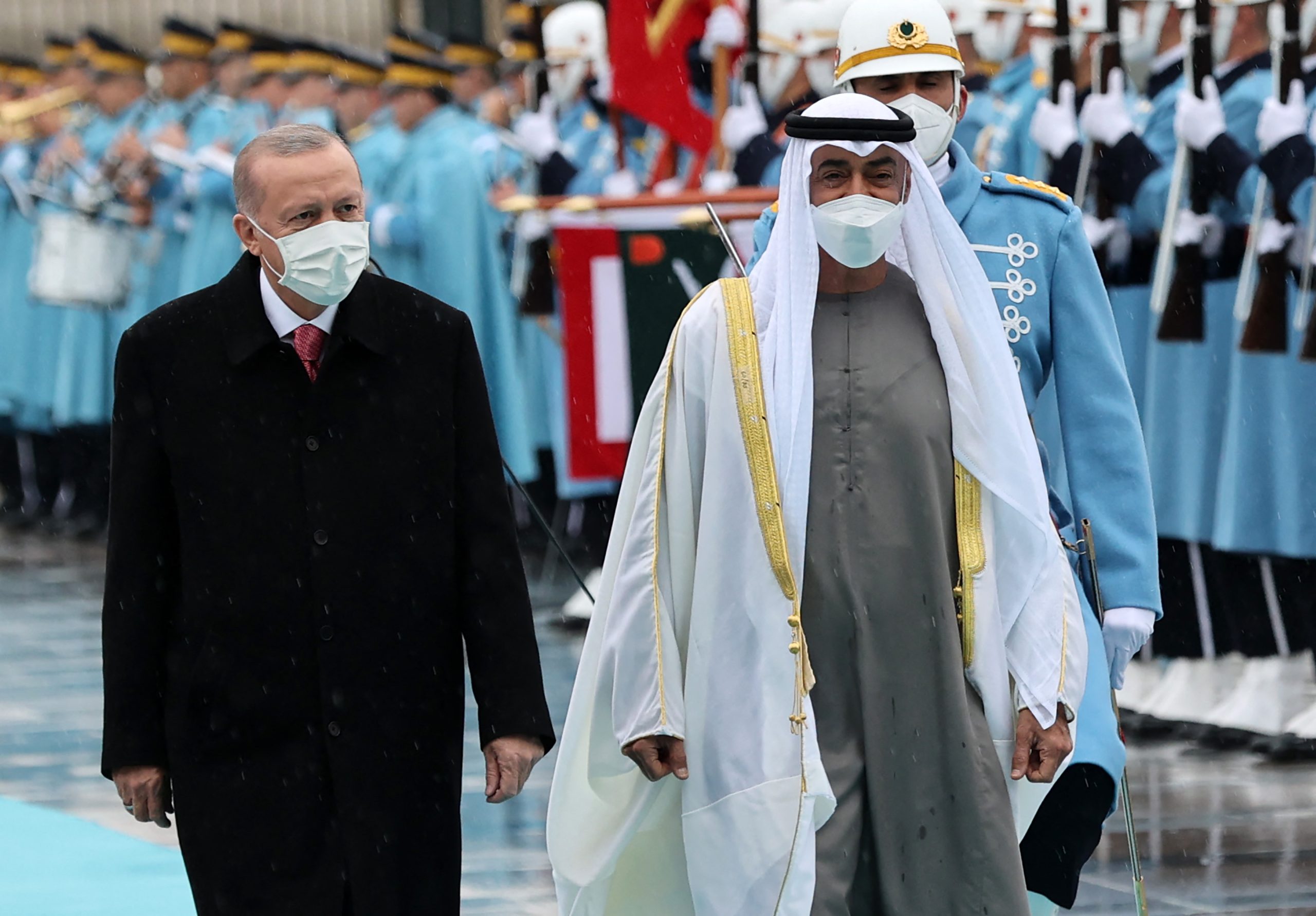
- 01 Jun 2022
Turkey’s Middle East Ambitions and Regional Role
(This event is organised by MEI Political Economy research cluster.)
While the Middle East has perpetually been at the crossroads, the current juncture is no less critical in which regional powers are fast realigning in the wake of the US shifting away from being the most dominant player in the region. Under this scenario, Turkey’s role becomes crucial not only because of its intrinsic strength but also due to its relative standing by virtue of its NATO membership which could make it a conduit for Western powers. They can leverage on Ankara to exercise control over the Middle East geopolitics, particularly out of fear of Russia and China filling the regional security void. Against these backdrops, this webinar would delve into understanding Turkey’s Middle East ambitions and regional role.
This public talk was conducted online via Zoom on Wednesday, 1 June 2022, from 4.00 pm to 5.30 pm (SGT).
Image caption: Turkish President Recep Tayyip Erdogan (L) welcomes Abu Dhabi’s Crown Prince Sheikh Mohammed bin Zayed Al Nahyan during an official ceremony at the Presidential Complex in Ankara, on November 24, 2021. (Photo by Adem ALTAN / AFP)
*Kindly note that due to a last minute commitment, Dr Ismail Numan Telci was unable to join us for this event. In place of him, his colleague Mr Gökhan Ereli joined the panel of speakers.
Listen to the full event here:
Watch the full event here:
Read the Summary of Event Proceedings:
By Daniel Kalish
Intern, Middle East Institute, National University of Singapore
Straddling Europe and Asia, Turkey is a geographic bridge between two continents. But how much of this geographic fact translates into international relations realities about the country’s role between the East and the West? During this event, experts dived into Turkey’s unique role and ambitions, particularly its changing perspective to the Middle East and strategic importance to the West.
Dr Ömer Aslan provided historical context to the discussion, highlighting two periods in the 20th century where Turkey had regional ambitions. The first was in the 1950s, when Turkey worked with Western allies during the Cold War and the second was in the late 1980s and early 1990s when Turkey used and increased its economic influence to affect the region in line with its Western allies. After 2002, Turkey had many advantages, with an anchor in the European Union, democratising reforms and was working as a democratising force in the region through soft power.
This trajectory ended with the Arab Spring as Turkey’s alliance with the West “hit the rocks.” Turkey shifted from soft power to coercive tactics, its democratising reforms came to a halt and even reversed and the country became present in outside military conflicts – causing it to feel militarily overconfident. Its position as a model democratic, capitalist, human rights-respecting country gradually fell. As President Erdogan has been equating Gulf security with Turkey’s security, guaranteed arms exports came next. The country currently faces moral costs of losing its model country status and abandoning the Khashoggi murder case.
The discussion’s moderator, Dr Asif Shuja, commented that Turkey finds itself “at the wrong places at the wrong time,” citing the Khashoggi case, being “ground zero” for the Iran-Israel conflict and now playing an important role in NATO and the Russia-Ukraine War. Dr Shuja notes that there is confusion about whether Turkey belongs to the West or to the East.
Professor Shahram Akbarzadeh elaborates on four areas that influence foreign policy thinking towards the Middle East in Turkey, namely:
- Turkey’s desire to be taken seriously by Europe (and also in the region) as a modern, democratic and perhaps secular state
- The Islamic heritage of Turkey and the role of religion
- Security concerns, emanating from state and non-state actors such as ISIS
- Economic factors
Professor Akbarzadeh said that the convergence of these factors makes foreign policy thinking forceful in Turkey and highlights different points in Turkey’s history where certain elements were more important. At the beginning of the 21st century, the AKP government was more explicit with its commitment to secularism and concern with security threats emanating from Syria, among other territorial and security concerns. These concerns helped Turkey consolidate its alliance with the US and strengthen its relationship and membership in NATO, as well as move towards normalising relations with Israel. But, Professor Akhbarzadeh cautioned, diplomatic relations don’t always follow a linear path. In 2008, the Gaza War ruptured relations between Turkey and Israel, an example of Turkey’s religious heritage playing a more dominant role in Turkey’s attitude towards Israel. Turkey paid a high price for this, with nine Turkish citizens being killed in the Mediterranean Sea as they were bringing aid to the Gaza Strip against an Israeli blockade in 2010. The high price significantly changed Turkey’s image in the Middle East, as putting Israeli actions against Palestinians on the front page brought Turkey respect and praise on the grassroots level in the Middle East and sent a strong signal that Turkey is part of the region.
With the arrival of the Arab Spring in the following years, both Iran and Turkey tried to claim leadership of the leaderless movement. It was clear that Turkey had the advantage, as the AKP had come to power through the ballot box and was widely respected. The AKP cultivated an image of being a successful, moderate, democratic Islamic party and reinforced the foreign policy thinking in Turkey that the country should turn East because that is where it could receive respect and claim leadership. But the move was also about economic prosperity, as Turkey welcomed foreign investment from the Gulf Cooperation Council (GCC). However, being part of the region also meant being embroiled in regional crises.
Professor Akhbarzadeh said that Turkey’s ambition in the Middle East also manifests in its peace brokering efforts, such as between Iran and the US in negotiating the Iran nuclear deal. This goes hand in hand with its feeling of being a significant, important and natural leader in the region.
Turkey’s attempts to move past the Khashoggi case because it sees the benefits of re-establishing economic ties with Saudi Arabia speaks to the former’s dire economic conditions today. The political future of the AKP rests on this economic performance, with elections coming up next year. This economic factor helps explain Turkish desire to bolster links with wealthy GCC members. Ultimately, Professor Akhbarzadeh concluded, it is “looking to the Middle East from a position of weakness.”
Dr Omair Anas split his points into three sections –
- the fundamentals of Turkish foreign policy and whether they have changed or not,
- the capabilities of Turkey as a state
- limitations of Turkey in achieving its ambitions
Dr Anas asserted that there is a lot of overstatement in the current discussion of Turkish foreign policy. Before 2002 and Erdogan, there was limited talk of Turkey as a regional player but in the last 10 years it has constantly been in the discussion. Dr Anas does not see enough substance in a lot of these ambitions and cautioned that they have serious limitations in achieving them. For example, Turkish nationalism was self-isolating and prevented Turkey from expanding and looking to the Middle East and other countries.
Dr Anas highlighted a limiting factor in Turkey’s ability to change its fundamental foreign policy positions. Turkey, he said, cannot change the sense of insecurity towards the West. It still looks at Europe and the United States with suspicion and there is a feeling that Western countries can question the territorial integrity of the country which fuels this insecurity. However, some factors have led to change. ‘Anatolian Tigers’ and Turkey’s burgeoning middle class have successfully related to Middle Eastern societies and have become more much more connected and exposed to them. Still, Turkey has been unable to break the supremacy of Egypt and Saudi Arabia in the Middle East region and is losing out on third place to the UAE, a significant challenge Turkey faces in becoming more ambitious in the Middle East. The country has made limited achievements in defence investments but no big breakthrough.
He concluded that there is a trend in Turkey that they are ready for greater integration with Middle Eastern countries which was not possible 15 years ago, and that there has been a ‘Middle Easternisation‘ of Turkey, but there has been an overstatement of Turkish achievements in the region. They have not made a leap that puts them on par with Egypt or Saudi Arabia.
Mr Gökhan Ereli highlighted recent changes in Turkey’s ambitions as well as defining what Turkey ultimately wants in the region. In the last two to three years, Turkey increased its geographic scope of interest, citing its close relations with Gulf countries and its development of relations with North African nations. Along with geographic expansion, it has expanded influence diplomatically, with effective results with many countries. Additionally, it increased contact in its near neighbourhood, facilitating meetings with officials from Egypt and Israel. Turkey has also played a more active role in international turmoils. Its role in the Russia-Ukraine War has strengthened Turkey’s relevance as a NATO member both in the eyes of Middle Eastern countries and Western countries, taking the line of opposing Russia’s invasion and also opposing the full exclusion of Russia in the European security architecture. It further became an international focal point by bringing Russian and Ukrainian diplomats together in the country, for peace talks.
As a final takeaway, Mr Ereli stated that Turkey’s regional ambition is to make contributions and efforts towards becoming a regional mediation and facilitation hub.
Highlights from the Q&A Session
Your comments on Turkey’s military material transfer as a military diplomacy tool in the Middle East and North Africa region?
Dr Aslan clarified that the important question is: where does Turkey’s strength lie?
He asserted that it is in its military technology and the transfer of that. Dr Aslan countered Turkey’s assertions that it has no responsibility for where its weapons end up in light of the Russia-Ukraine War, asking what would occur if its weapons were used in an intra-Middle Eastern conflict.
Dr Anas however took a different perspective – downplaying the strength of Turkey’s military technology and claiming that Turkey cannot be a replacement for any of the European defence exporters such as France, Germany, Italy and the United States or non-Western players like China, Russia or India. Turkish ambitions for defence exports are still realistic, they have a small fraction of the market and the possibility of expansion in a dramatic way is not likely in the future. Instead of focusing on defence exports, they may be seeking investment in the Turkish defence sector. In the next 10 years, besides the Bayraktar drone, they do not have anything very exceptional or something that can be considered a replacement to other markets.
Mr Ereli echoed the sentiment that Turkey cannot replace the United States, Russia or China in the defence sector but acknowledged that defence cooperation contributes to regional cooperation and Turkey is using and benefiting from military diplomacy.
Is Turkey willing to act as NATO’s extended arm to the Middle East?
Dr Akhbarzadeh answered that Turkey is constantly walking a fine line between being a NATO member and being part of the Middle East and representing the ‘Muslim block’ on the international stage. Turkey would not like to see itself as representing the Middle East in NATO as it would tarnish its credentials as a regional leader that stands on its own merits, so it would not risk its regional standing in the Middle East by behaving as if it was representing NATO.
Dr Anas countered the question, responding that NATO does not have this expectation and does not want to see Turkey this way. The real focus should be reconsidering NATO’s role in world politics, pointing to the Russia-Ukraine War as an example of its waning influence as individual countries within NATO such as France are trying to assume a greater role than NATO itself.
Among Turkey’s rapprochements with regional competitors, namely Saudi Arabia, UAE and Israel, which one of them will be the most sustainable and important?
Dr Akhbarzadeh said that the question assumes that the three countries are in competition but the reality is that the UAE and Israel have signed the Abraham Accords and Saudi Arabia has recognised Israel so there is no inherent contradiction between all three. He asserts that Turkey’s trade relations with Saudi Arabia is the top priority for Ankara’s leadership because “that’s where the money is coming from.”
Mr Ereli responded that the most sustainable normalisation climate is with the UAE and that the rapprochement between Turkey and the Emirates could serve as a model for other countries.
About the Speakers
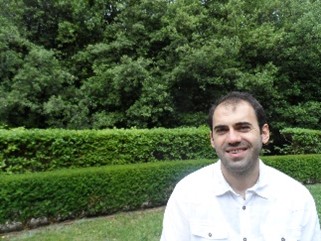
Associate Professor
Ankara Yıldırım Beyazıt University, Ankara -Turkey
Prof Shahram Akbarzadeh
Convenor of the Middle East Studies Forum
Alfred Deakin Institute, Deakin University, Australia
Dr Omair Anas
Assistant Professor
Ankara Yildirim Beyazit University, Ankara – Turkey
Dr Ismail Numan Telci
Vice-President
Center for Middle Eastern Studies (ORSAM), Turkey
[Moderator] Dr Asif Shuja
Senior Research Fellow
Middle East Institute, NUS
Dr Ömer Aslan is an associate professor of International Relations at Ankara Yıldırım Beyazıt University, Turkey and author of The United States and Military Coups in Turkey and Pakistan – Between Conspiracy and Reality (Palgrave Macmillan, 2018). His publications have appeared in the Turkish Studies, British Journal of Middle Eastern Studies, Middle East Critique, Journal of Balkan and Near Eastern Studies, Journal of Asian Security and International Affairs, Mediterranean Politics and Oxford Research Encyclopedia of Politics. His research interests center around civil-military relations, Turkey’s South Asia relations and Middle East policy.
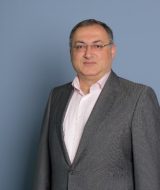
Convenor of the Middle East Studies Forum
Alfred Deakin Institute, Deakin University, Australia
Professor Shahram Akbarzadeh is the convenor of the Middle East Studies Forum at Alfred Deakin Institute, Deakin University, Australia. He held the prestigious ARC Future Fellowship (2013-2016) on the role of Islam in Iran’s foreign policy-making and recently completed a Carnegie project on proxy wars in the Middle East. Prof Akbarzadeh has an extensive publication record, including the Routledge Handbook of International Relations in the Middle East (2010).
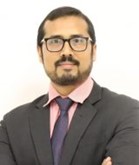
Assistant Professor
Ankara Yildirim Beyazit University, Ankara, Turkey
Dr Omair Anas teaches international relations at Ankara Yildirim Beyazit University. He did his PhD and M.Phil. in West Asian Studies from Jawaharlal Nehru University, New Delhi. He worked as a research fellow at the Indian Council of World Affairs in New Delhi from 2015–2018. From 2012-2013, he was also visiting scholar at Freie University Berlin, Germany. He has published research papers and chapters in many journals and edited volumes on Turkish and Indian foreign affairs. He has published an edited volume on Turkey’s Asia Relations (Palgrave 2022) and has published several research papers on West Asian affairs. He specialises in and teaches non-Western international relations, Middle East-Asia relations, religion and politics and Arab media culture. He publishes expert opinions and columns for many prominent organisations such as the Middle East Eye, Indian Express, First Post and Daily Sabah, Observer Research Foundation (New Delhi), Al Jazeera Studies and Al Sharq Foundation, to name a few.
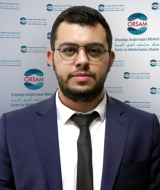
Gulf Studies Coordinator, ORSAM
PhD candidate (International relations), Middle East Technical University
Mr Gökhan Ereli graduated from Kırıkkale University’s international relations department in 2014 with the highest CGPA in his graduating class. He then enrolled in the Middle East Technical University (METU)’s international relations Masters with thesis programme in 2015. Currently, he continues his study in his dissertation as a PhD candidate at METU.
Concurrently, Mr Ereli works as the Gulf Studies Coordinator at the Center for Middle Eastern Studies (ORSAM) and is interested in the Gulf (Saudi Arabia, UAE and Qatar) and American foreign policies. His academic interests include Middle East in world politics, identity politics, post-positivist international relations theories, contemporary French philosophy, religion and nationalism.
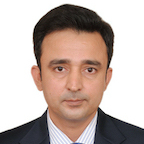
Senior Research Fellow
Middle East Institute, NUS
[Moderator] Dr Asif Shuja is a senior research fellow at the Middle East Institute, National University of Singapore. He is an Iran expert whose research focus include Iranian domestic politics, the Iranian nuclear issue, Iran’s foreign policy and Iran’s regional role. He was previously associated with the International Center for Strategic Studies, Abu Dhabi, as a non-resident fellow. His other research affiliations include the Indian Council of World Affairs, where he worked as a research fellow and the Centre for Air Power Studies, New Delhi where he was attached with the nuclear security project of the Department of Atomic Energy. Dr Shuja obtained his PhD on Iran’s political power struggle from the Centre for West Asian (Middle East) Studies, Jawaharlal Nehru University, New Delhi. He is the author of the book India‑Iran Relations under the Shadow of the Iranian Nuclear Issue.




